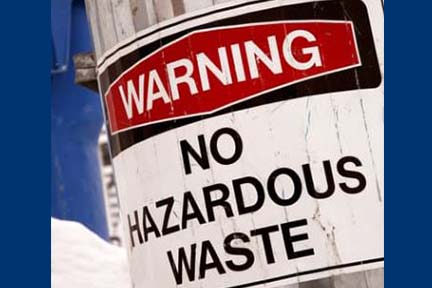
Department of Civil Rights File to Protect Citizens

Media contact: FOR IMMEDIATE RELEASE: AG Nessel, Department of Civil Rights File to Protect
|


Media contact: FOR IMMEDIATE RELEASE: AG Nessel, Department of Civil Rights File to Protect
|


FOR IMMEDIATE RELEASE October 25, 2021 Contact: [email protected]
Governor Whitmer Announces New Leadership to Cabinet and State Agencies The state of Michigan welcomes new directors at UIA and DTMB, and names chief information officer
LANSING, Mich. — Governor Gretchen Whitmer today announced a new appointment to
“I am thrilled to have three qualified, skilled public servants join my administration to continue putting Michiganders first and get things done that make a real difference in people’s lives,” said Governor Gretchen Whitmer. “Julia, Michelle, and Laura bring a wealth of experience to their new roles and will help us continue to stay laser-focused on growing the economy, creating good-paying jobs, and making progress on the kitchen-table issues that matter most to families, communities, and small businesses.”
Julia Dale, Director of UIA Julia Dale will transition to director of the UIA from her position at DTMB. Julia most recently served as an assistant attorney general and Section Head of Business and Charities Section in the Office of the Attorney General and previously worked in various high-level roles at the Department of Licensing and Regulatory Affairs (LARA). Julia received her J.D. at Wayne State University and her undergraduate degree at Michigan State University.
“Julia will hit the ground running and I am proud to have a permanent director leading the way at UIA,” said Governor Gretchen Whitmer. “Under her leadership, I am confident that UIA will clear the backlog, tackle waste, fraud, and abuse, and get people the resources they need while saving taxpayer dollars.”
“I am honored to continue serving my fellow Michiganders at the UIA,” said Julia Dale. “As we emerge from the pandemic, there is so much work to do to ensure that we can deliver benefits to families who need them and I cannot wait to pursue long overdue changes and work with the incredible staff to get things done.”
Liza Estlund Olson, who currently serves as acting director, will remain at UIA temporarily to help with the transition before returning to her previous role as director at the Office of the State Employer.
Michelle Lange, Acting Director of DTMB Michelle Lange will serve as acting director at DTMB. She has held key leadership positions within DTMB in recent years, including chief deputy director, director of Executive Direction and Operations, chief of staff to the director, and as the department legislative liaison. Lange has worked under both Democratic and Republican governors, serving for Governor Whitmer under the chief operating officer and for Governor Rick Snyder as deputy director of Legislative Affairs. She also served as a judge on the Michigan Tax Tribunal and spent 12 years as a staff member in the Michigan Senate. Lange has both a Bachelor of Arts degree in Political Science and a Juris Doctor from Michigan State University.
“Michelle has served in several high-level roles at DTMB and will continue moving the department forward as we work to find a permanent director,” said Governor Gretchen Whitmer. “Her decades of experience working across the aisle will help her steward the department and support state government as we stay laser-focused on growing our economy and putting more Michiganders on paths to prosperity.”
“DTMB is an outstanding organization of experienced and dedicated professionals who work to help, connect, and solve the issues of the day, and I am excited for the opportunity to lead the team,” said Michelle Lange. “I am committed to continuing to provide top-notch administrative services to state departments, ensuring they can keep getting the job done for all Michiganders. Michigan’s families, communities, and small business are counting on us.”
The State of Michigan will conduct a nationwide search to select a permanent DTMB director.
Laura Clark, Chief Information Officer Laura Clark will take the helm as the state’s chief information officer (CIO), directing the state’s technology and digital security efforts. Laura currently holds the position of chief security officer and will retain those duties. She has served in various leadership positions within government for more than 20 years, leading IT services, strategies, and systems. Laura holds a Bachelor of Science in geography from Michigan State University.
“Laura’s leadership plays a key role in keeping state employees safe online and helps them focus on getting things done for families,” said Governor Gretchen Whitmer. “I am thrilled to have her perspective and expertise so we can continue delivering for Michiganders.”
“Technology is paramount to delivering government services and I am committed to advancing innovative and safe solutions that reach all residents and businesses,” said Laura Clark. “Michiganders deserve a government focused on delivering for them, and I am excited for the opportunity to make that a reality.”
|

Pontiac, Michigan – Oakland County Health Division has added booster dose clinics for Pfizer COVID-19 vaccine for the last week of October and first week of November in Holly, Novi, Pontiac, Rochester, and Southfield.
“We have had a good turnout of people seeking a booster at our COVID vaccine clinics and we continue to offer more clinics to ensure those who want the booster dose can get one,” Health Division Medical Director Dr. Russell Faust said. “We also want to remind people that if you get your COVID-19 vaccine at any of our indoor community clinics, we encourage you to also get your flu vaccine at the same time, which is vital to preventing serious illness and death as the pandemic and flu season coincide.”
Appointments are strongly encouraged, but walk-ins are welcome. Click on OaklandCountyVaccine.com for addresses, times, and to schedule an appointment. Those who do not have access to the Internet may call the Nurse on Call at 800-848-5533 Monday through Friday, 8:30 a.m. – 5 p.m. for more information.
Individuals who schedule their COVID-19 vaccine appointment at an indoor clinic will be asked to indicate whether they would like to receive the flu vaccine. Residents may also request it at the time they show up to get their COVID-19 vaccine at an Oakland County indoor clinic. The flu vaccine is unavailable at drive-through clinics.
The Health Division is also developing plans to administer booster doses for Moderna and Johnson & Johnson COVID-19 vaccines should the Centers for Disease Control and Prevention approve emergency use authorization for those booster doses this week. If approved, the Health Division will likely announce the availability of booster doses for Moderna and Johnson & Johnson as soon as early next week.
Oakland County Health Division continues to be focused on limiting the transmission of COVID-19 by immunizing residents who remain unvaccinated. About 281,000 eligible Oakland County residents remain unvaccinated, at least 45,000 of whom are ages 12-19 years old. New cases of COVID-19 continue to grow, especially among unvaccinated residents. Of the more than 5,000 new confirmed and probable cases in Oakland County from Oct. 4-17, residents 39 years old or younger accounted for 53.0 percent of the new cases.
The following is an update on progress vaccinating Oakland County residents, according to the State of Michigan COVID-19 Vaccine Dashboard as of Oct. 19, 2021:
Total eligible residents 12 and older: 1,091,389
Total eligible residents 16 and older: 1,029,737
Total eligible senior residents 65 and older: 217,676
Total doses distributed within Oakland County: 1,694,275
Total primary doses administered within Oakland County: 1,506,430
Total third and booster doses administered in Region 2 North (Oakland, Macomb, and St. Clair counties): 99,986


FOR IMMEDIATE RELEASE
October 21, 2021 Contact: [email protected]
Governor Whitmer Celebrates Michigan Winning Economic Development Award $1 million federal grant will build on state’s economic momentum, helping to create more good-paying jobs and uplift small businesses and communities
LANSING, Mich. — Today, Governor Gretchen Whitmer celebrated th
“Today’s grant will build on the bipartisan budget I signed and the MI New Economy plan I proposed to put Michiganders first and uplift families, communities, and small businesses,” said Governor Whitmer. “I am laser-focused on tackling the big, structural economic challenges
Budget Last month, the governor signed the Fiscal Year 2022 budget bill that delivers more resources to state police to help them hire more troopers and expand and improve training. The latest budget also invests in 911 system upgrades and delivers on the kitchen-table fundamental issues that make our communities stronger: putting 167,000 Michiganders on a tuition-free path to higher-education or skills training, expanding low or no-cost childcare to 105,000 kids, repairing or replacing 100 bridges while creating 2,500 jobs, and more.
Earlier this year, Governor Whitmer and legislature worked together to put Michigan students first and passed the largest significant education investment in state history, closing the funding gap between schools in Michigan and including a historic amount of resources for schools to hire more nurses, counselors, and social workers. Early investments in mental and social health help reduce crime in the long run.
MI New Economy At the Mackinac Policy Conference, the governor laid out her $2.1 billion MI New Economy plan to grow Michigan’s middle class, support small businesses and invest in communities.
The plan recognizes a strong economy isn’t only about creating jobs but requires a focus on our state’s people and communities as well. That’s why MI New Economy has three pillars, each of which has specific and ambitious goals that will help state officials track progress on efforts to build a stronger and more resilient Michigan.
Pillar 1: Grow the Middle Class - No economic vision for the state can be complete if it doesn’t focus on eliminating poverty and lifting families into the middle class. MI New Economy would expand Michigan Reconnect and Futures for Frontliners to put more people on a tuition-free path to a good-paying, grow the Going Pro credential program to address the skills gap, and strengthen the college to industry pipeline. The goal is to lift 100,000 families out of working poverty and meet Michigan’s Sixty by 30 goal to have 60% of adults earn a postsecondary credential by 2030.
Pillar 2: Support Small Business – To supplement the great economic development work our state already does, Michigan needs a focus on creating and growing more Main Street businesses. MI New Economy would enact the Michigan Mainstreet Initiative to give grants to our smallest businesses and entrepreneurs, invest in start-ups and electric vehicles, and help employers in emerging industries attract and retain talent. The goal is to become a top 10 state for small business job growth, household income growth, and venture capital funding over the next five years.
Pillar 3: Build Strong Communities - Michigan’s residents deserve to live in vibrant communities with the kinds of services and amenities associated with a high standard of living. MI New Economy would build affordable housing units, rehabilitate vacant buildings, redevelop brownfield sites, and dedicate resources to create more energy-efficient homes. The goal is to build 75,000 new or rehabilitated housing units and have 100% access to high-speed internet in the next five years. |


Media contact: FOR IMMEDIATE RELEASE: AG Nessel Joins Bipartisan Coalition in Supporting Local JournalismLANSING — Michigan Attorney General Dana Nessel joined a bipartisan coalition of 15 attorneys general calling on Congress to pass legislation supporting local journalism. “As stated in our letter, local journalism is absolutely critical to our communities and our democracy,” Nessel said. “This industry has struggled for many years and this pandemic has only exacerbated these challenges. I am urging Congress to support local journalism and pass this legislation.” The letter calls on key leaders to support and pass the Local Journalism Sustainability Act of 2021 (H.R. 3940 and S. 2434). The act would provide:
The letter reads: “Local newspapers are responsible for half of our country’s original reporting, although they only account for one-quarter of media outlets. In many rural communities, local news organizations provide the only information and updates about issues impacting the community.” “Regional journalism is critical, as is journalism by and for Black, Indigenous, and people of color, including ethnic media organizations,” the letter continues. “These organizations are best positioned to identify, investigate, and report on issues of concern to their respective communities, and Congress should take action to support and strengthen them.” Joining Attorney General Nessel in sending this letter are the attorneys general of Connecticut, Delaware, District of Columbia, Guam, Illinois, Massachusetts, Nevada, New Hampshire, New Mexico, New York, Pennsylvania, Rhode Island, Virginia, and Washington. |


FOR IMMEDIATE RELEASE October 20, 2021 Contact: [email protected]
Governor Whitmer Signs Legislation Funding Environmental Protection and Hazardous Waste Management
LANSING, Mich. — Governor Whitmer today signed House Bill 5003, which will fund the Department of Environment, Great Lakes, and Energy’s (EGLE) continued efforts to effectively protect Michigan’s environment and natural resources by extending the sunset dates for certain fees collected by EGLE for various water and waste removal applications and services.
“Michigan’s natural resources are our state’s greatest treasures,” said Governor Whitmer. “I’m proud to sign this bill today, which ensures that everyone contributes their fair share when accessing these services. It’s important that Michigan’s critical environmental protection efforts continue to receive the financial support they need to protect our state.”
House Bill 5003 will extend the sunset dates to October 1, 2025, for fees collected for floodplain permit applications, wastewater and storm water operator training and certification, stormwater and surface water discharge, hazardous waste handler user charges, and land and water permit fees. These fees totaled $7.9 million in revenue for EGLE in fiscal year 2020-21.
House Bill 5003 was sponsored by Rep. Shri Thanedar, D-Detroit, and a copy of the bill can be found here. |